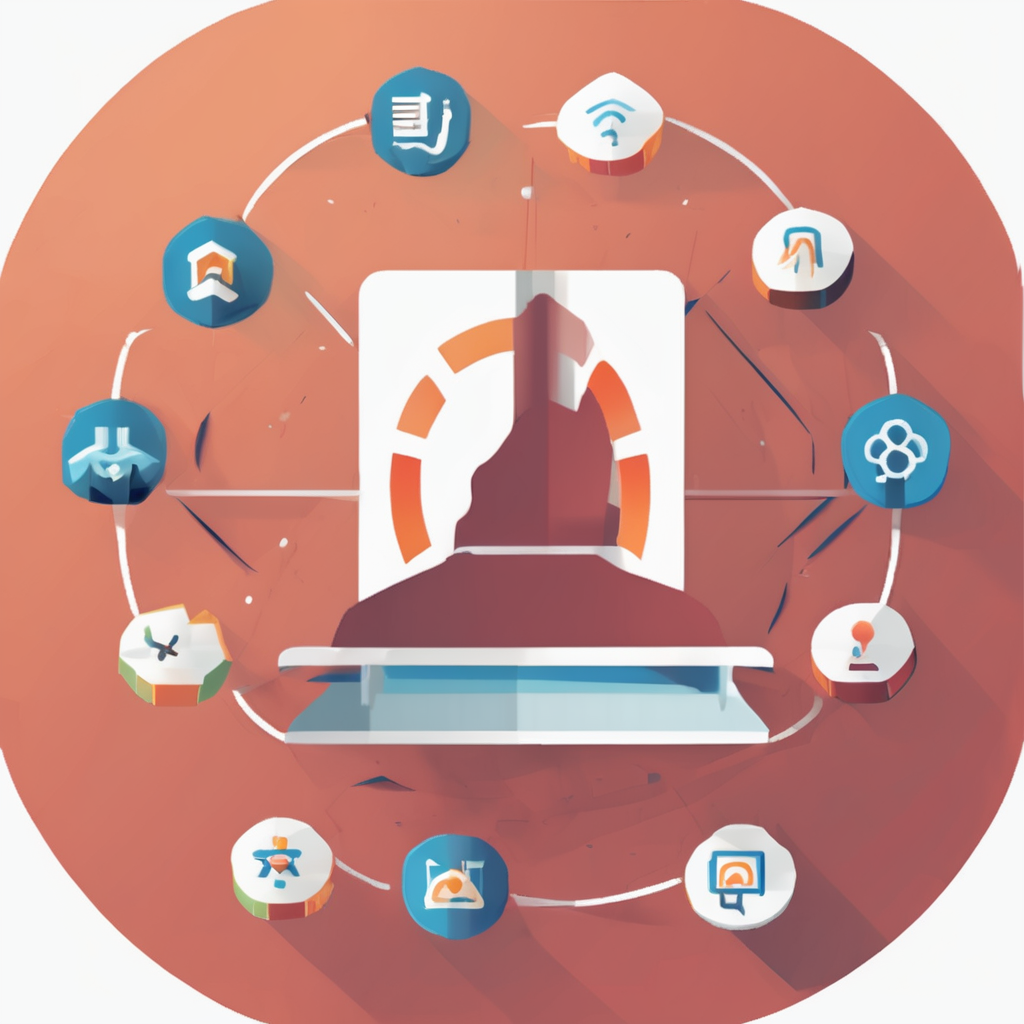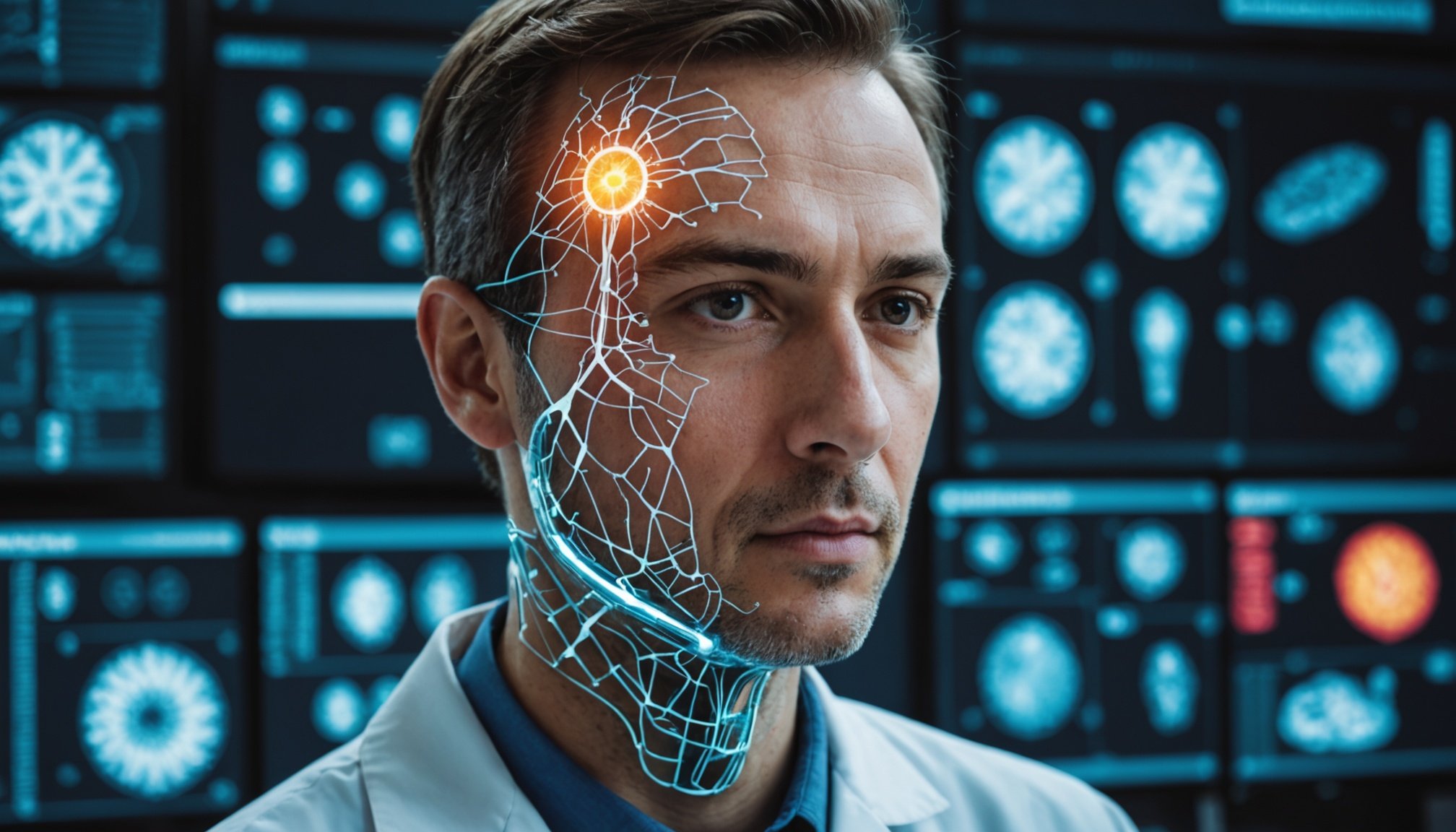Overview of the AI Platform for Early Disease Detection
The AI healthcare platform is a revolutionary tool tailored for enhancing medical processes. It primarily serves the function of early disease detection, a crucial component in contemporary healthcare tactics. By identifying diseases at nascent stages, patient outcomes can significantly improve, allowing for timely interventions.
At the core of this technology in healthcare are sophisticated algorithms and machine learning models. These elements work in tandem to analyse substantial datasets, drawing patterns clinicians might otherwise overlook. The AI platform assesses diverse indicators such as genetic data, lifestyle information, and medical histories to provide a comprehensive health evaluation.
Also to discover : Revolutionizing supply chain and logistics with ai-powered predictive analytics: an in-depth handbook for success
Moreover, this platform champions innovation in healthcare by integrating real-time data analysis, providing healthcare providers with immediate insights. Not only does this expedite the diagnostic process, but it also enhances precision, minimizing redundant tests and reducing patient anxiety.
The significance of early disease detection lies in its ability to preempt the progression of chronic conditions. For example, early detection of ailments like diabetes or heart disease can drastically shift patient management strategies from reactive to proactive. Adoption of such technology reinforces the healthcare system’s efficiency, paving the way for personalised medicine approaches and ultimately contributing to better health outcomes.
Topic to read : Enhancing smart home living: how ai is redefining user experience in automation
Key Features of the AI Platform
Integration of AI technology features into healthcare is transformative. The platform employs advanced diagnostic tools to enhance patient outcomes. It utilizes machine learning to analyze vast datasets, offering precise diagnostics. Machine learning allows the AI system to learn continuously from new data, improving its capabilities and predictions. By leveraging data analytics, it identifies patterns that human practitioners might overlook, thus facilitating early detection of diseases.
A critical aspect is the platform’s user-friendly interface which ensures that healthcare professionals, regardless of their technical expertise, can easily adopt and navigate through the system. This accessibility encourages wider adoption and minimizes training time, enabling professionals to focus on patient care.
Moreover, integration with existing healthcare systems is seamless. The AI platform connects with various data sources, amalgamating information from electronic health records, labs, and imaging devices, ensuring all relevant patient information is available in one place. This consolidation of data promotes a cohesive healthcare experience. Additionally, it supports the implementation of innovative healthcare solutions by providing a robust framework that enhances existing mechanisms.
In summary, the platform’s combination of enhanced diagnostic tools, user accessibility, and integration capabilities positions it as a pivotal instrument in the future of healthcare innovation.
Benefits of Using AI for Early Disease Detection
Artificial Intelligence is reshaping healthcare dynamics by providing numerous benefits, particularly in early disease detection. At the forefront is the technology’s ability to offer enhanced accuracy in disease diagnosis. Unlike traditional methods, AI systems can analyse vast amounts of medical data, identifying patterns and correlations that might be missed by the human eye. This capability ensures that diagnoses are not only timely but also remarkably precise, minimizing the risk of false positives and negatives.
The benefits of AI in healthcare also extend to the speed of diagnostics. By utilizing machine learning algorithms, the time taken to detect diseases is significantly reduced. This swift intervention is crucial in managing conditions that require urgent care, thereby improving the prognosis and reducing the burden on medical staff.
Moreover, patient care sees substantial improvements through predictive analytics and continuous monitoring facilitated by AI. Predictive models can assess the probability of disease occurrence, allowing healthcare providers to take preemptive measures. This is especially beneficial in chronic disease management where continuous patient monitoring leads to proactive treatment adjustments, enhancing the overall quality of life for patients. Thus, improved diagnosis and accelerated care processes translate to tangible advancements in medical science.
Real-World Applications and Case Studies
The integration of AI application in healthcare has led to numerous success stories within hospitals and clinics. For instance, in a renowned hospital, AI platforms are utilised to streamline patient diagnoses and treatment plans. This has resulted in faster decision-making processes and improved patient outcomes, showcasing a direct link between AI technology and enhanced healthcare services.
Case studies highlight the transformative impact of AI integration in clinical settings. In one study, patients experienced a 20% reduction in waiting times for diagnosis, thanks to AI’s ability to process medical data rapidly. Another success story involves AI applications that predict potential complications by analysing patient history, thus enabling early intervention.
Testimonials from healthcare professionals echo these findings. Many report that AI tools have decreased their workload by automating routine tasks, allowing them to focus more on patient care. One clinician noted, “The AI system is like an extra pair of hands, making our team more efficient and responsive.”
Patients, too, have shared their positive experiences. One patient mentioned that AI-driven insights provided clarity and peace of mind during their treatment journey, reinforcing the value of AI in healthcare operations.
Comparing AI Solutions with Traditional Diagnostic Methods
The distinction between AI vs traditional healthcare methods lies in their approach, strengths, and effectiveness in diagnostics. AI’s strength is its ability to process vast amounts of data rapidly and identify patterns that might elude human practitioners. This capability improves the healthcare efficiency by providing faster and potentially more accurate diagnostics. Meanwhile, conventional methods rely heavily on human experience and intuition, which can be both an advantage and a limitation due to potential human errors and time constraints.
In terms of diagnostic comparison, AI shines in areas where data analysis and pattern recognition are crucial. However, it may occasionally struggle with the nuances requiring human judgment. Traditional methods excel in complex cases where context and human empathy are critical, ensuring a personalised patient experience.
When it comes to cost, the cost-effectiveness of AI technologies becomes evident as AI can reduce the long-term costs associated with diagnostic errors and repeat testing. Upfront costs might be higher, but potential savings can be substantial through improved accuracy and efficiency.
Looking ahead, the future trends in healthcare indicate a blend of AI advancements and traditional methods. This synergy promises enhanced outcomes, leveraging strengths from both to optimise diagnostics and patient care.
Expert Opinions on AI in Healthcare
Integrating Artificial Intelligence (AI) into healthcare presents exciting possibilities and challenges. According to expert insights, healthcare professionals specializing in AI have diverse opinions on the future of AI in healthcare. One prevalent viewpoint is that AI can significantly enhance diagnostic accuracy, allowing for quicker and more precise treatments. Experts assert this could lead to more personalised patient care and improved outcomes.
However, there are ethical considerations and challenges to be addressed. One significant concern is data privacy, as AI systems require access to vast amounts of patient data to function optimally. Healthcare technology opinions often highlight the need for robust data protection measures to prevent breaches and misuse of sensitive information. Furthermore, the potential for biases in AI algorithms is scrutinised, emphasising the necessity for transparent AI models.
When considering AI’s role in future healthcare, experts predict an increase in its deployment, especially in areas like remote patient monitoring and predictive analytics. These applications can revolutionise patient care by providing proactive interventions rather than reactive treatments. Nonetheless, the ongoing dialogue among professionals focuses on balancing innovation with ethical standards to ensure AI integration benefits both healthcare providers and patients significantly.
Visual Data and Patient Testimonials
In the realm of healthcare data visualization, statistics and infographics play a crucial role in summarising the impact of AI technologies. For instance, a well-designed infographic can effectively demonstrate improvements in patient outcomes, showcasing the tangible benefits of AI platforms in healthcare settings. These visuals not only simplify complex information but also make it accessible to a broader audience, aiding in informed decision-making.
Gathering extensive patient feedback offers another layer of understanding. Patient experiences provide personal insights that complement quantitative data. Testimonials highlight how AI technologies have enhanced patient care, from faster diagnosis to more personalized treatment plans. Such narratives are invaluable for healthcare providers looking to refine their AI systems, ensuring that technological advancements align with patient needs.
Presenting visual data alongside feedback on AI helps contextualise these innovations’ effectiveness. This combination allows stakeholders to see both the empirical success and the human element, offering a comprehensive view of AI’s role in healthcare. By valuing both numbers and narratives, we gain a fuller picture of how AI can revolutionise patient care, guiding future improvements and development strategies for these technologies.











